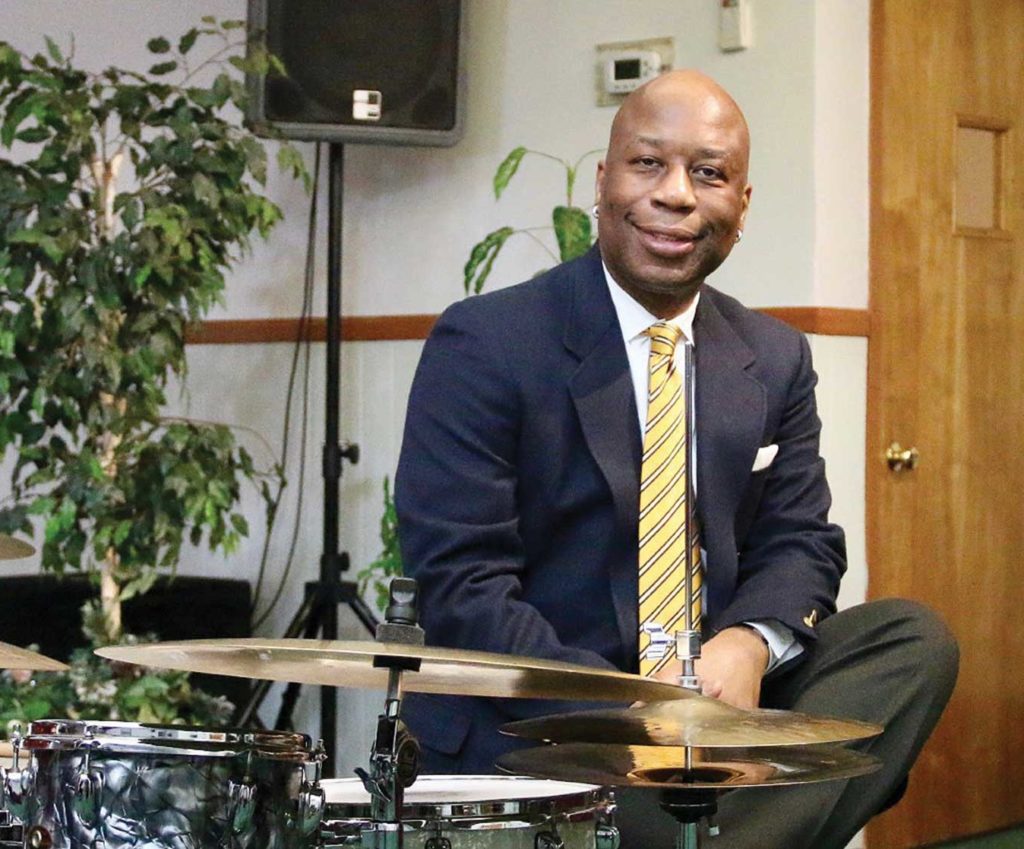
Ron Savage, musician and professor, was named vice president and executive director of Berklee College of Music this month. The inaugural position solidifies Berklee’s commitment to change and positions Savage uniquely as an executive who can bring more of Boston into the mix. Renowned as a drummer, Savage also takes on the task of mentoring the next generation of artists. Already a fount of musical creativity and world renowned for its students and faculty, Berklee now enters a new era. The Banner caught up with Savage in Boston.
You are now Berklee’s first-ever vice president and executive director at Berklee College of Music. Why first-ever? And what is the job?
Berklee is expanding as an academic enterprise, continuing to grow our global reach. We have campuses in Valencia, Spain; Abu Dhabi; New York City; the Boston Conservatory; and there’s an online school. We partner with schools in over 30 countries because there’s such a demand for what we offer. In each of our sites, we have a vice president and executive director, and so here in Boston, at our flagship campus, I’ll be head of campus: developing curricula, helping to create a learning environment, facilitating communication, working on hiring and so on.
As both an artist and an academician, you have a varied skill set. Can you tell readers about how musician skills add to being to a teacher?
To perform at a high level, you have to be a perpetual student. I’m not far removed from the students every time I have to prepare for a concert. When I work with a new artist or on a new project, I’m a student. And to be a drummer, you have to have compassion for your fellow musicians, to support them in being their best. Great teaching comes from that: the desire to see them succeed. You cannot have preconceived notions of who they and who they will become.
You are co-founder of Berklee’s Black Scholars Initiative (BSI). Can you say a few words about its start in 2017 and its evolution and current goals?
In 2017, Black students at Berklee tended to have a poor experience and a low track record of success, not because of lack of musical ability and talent, but due to limited support. At that time, Demond Martin, now a former trustee, challenged us to come up with a program to help support Black students find success at Berklee. He supported the program with a very large gift to the college to help our efforts. We developed a program to enhance a sense of community for Black students and faculty. We provide tutoring and financial aid and we emphasize resources to help students. It was a tremendous effort by a leadership team that came together. We built a one-week pre-orientation program and a mentoring system for the first year. We have tripled retention of Black students in the first year: With 86% retention, it’s the highest in the school. And we have doubled the graduation rate of Black students. We didn’t change curricula or requirements. We created a supportive infrastructure.
You’ve established music festivals in Cambridge and Mattapan. What was 2022 like, and what’s ahead for these in 2023?
We expanded the Cambridge festival in 2022 to three days, and we’re coming back in 2023, loud and proud. We hope to restart the Mattapan Jazz and Unity Festival in 2024; fundraising was an issue because of the pandemic.
What unique challenges does Boston face as a city awash with musicians but not so many venues?
There are two parts to this. Community-wise and with local governments, there needs to be a collective understanding that to have a vibrant arts scene, support has to come from all facets of the community. Then, too, one reason I started the jazz festivals was to create opportunities for this music. In that sense, artists need to be more entrepreneurial. That needs to be part of our skill set.






